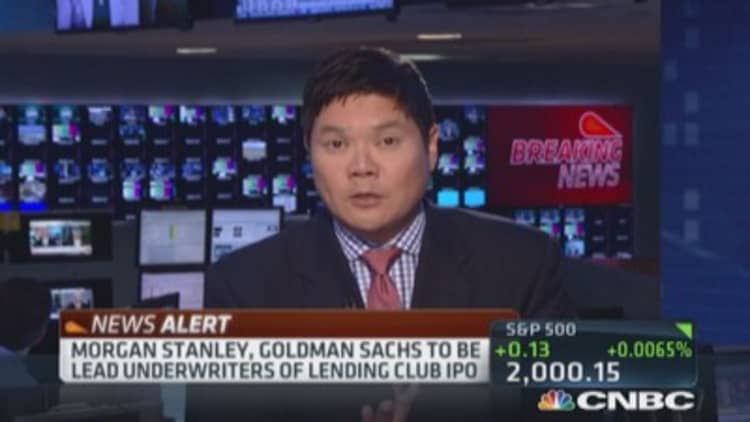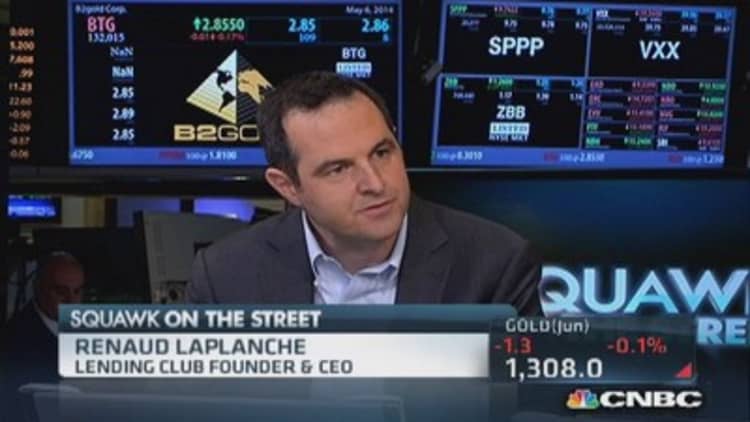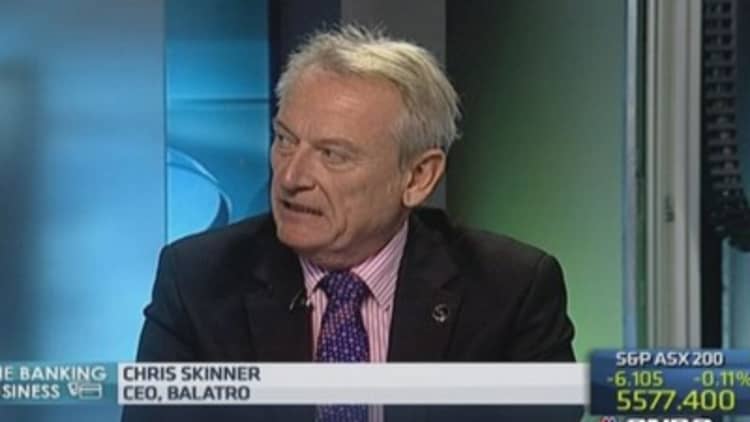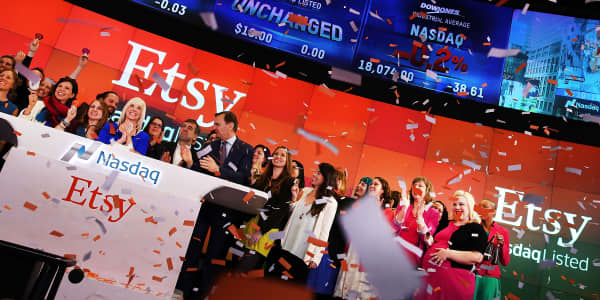Alibaba has dominated the IPO headlines since the Chinese e-commerce and digital marketplace behemoth filed for a U.S. initial public offering in May. But it's the coming share sale of another online marketplace that likely has greater relevance to Americans.
LendingClub, the largest U.S. provider of peer-to-peer loans announced plans Wednesday to raise $500 million in an IPO. Located in San Francisco, clear across the country from the nation's money hub of Wall Street, Lending Club has gained popularity by focusing on a piece of the financial universe that the banking industry has long neglected: consumer loans.
Families wanting to remodel their homes, take overseas vacations or relocate have been forced to rack up credit card debt at high interest rates, because banks stopped putting forth the resources into underwriting those relatively low dollar loans.
LendingClub and smaller rival Prosper Marketplace invite borrowers looking for loans of up to to $35,000, with more than three-quarters of customers using the funds to consolidate existing debt. For LendingClub's lowest-risk borrowers, rates on three-year loans start at below 7 percent.
Read MoreLending Club helps pay off personal debt
As of the end of June, LendingClub had issued more than $5 billion in loans since its launch in 2007, including over $1 billion just in the latest quarter. If the stock market behaves, LendingClub plans to go public before the Thanksgiving holiday in late November, said a person close to the company. Morgan Stanley and Goldman Sachs are leading the offering.
Here's what makes it a marketplace. Rather than acting like a bank, which makes money on fees to consumers as well as the spread between its borrowing costs and interest rates charged to customers, LendingClub lets outside investors—retail and institutional—buy loans from its website.
After a prospective borrower applies for a loan, LendingClub uses software and lots of data to underwrite the customer and determine if the loan can be issued. If the application makes it through the screening, it's made available for the investing public.
A retail investor can open an account with a few hundred or few thousand dollars and build a portfolio of diversified loans by putting as little as $25 into each. When a loan gets fully funded, it gets issued to the borrower and LendingClub gets paid an origination fee. LendingClub's net revenue more than doubled in the second quarter to $48.2 million, though operating expenses surged, leaving the company with a $9.2 million net loss.
Peer-to-peer lending vs. banking



And here's why there's been so much growth. According to LendingClub, notes with the highest three ratings have historical returns of 5 percent to 8.7 percent, meaning an investor with an array of those loans is somewhere in the middle. Compare that with other fixed income options, like the 10-year Treasury that's holding stubbornly below 3 percent and certificates of deposit, which are right around 1 percent.
"Being in a record-low interest rate environment coming up on six years has helped tremendously," said Peter Renton, an industry blogger and founder of Lend Academy, a money management and research firm that focuses on peer-to-peer loans. "The investor growth has been what's driving it. Borrowers are always looking to borrow money."
The investors Renton is referring to are institutions, ranging from small family offices across the country to some of the world's biggest hedge funds and investment banks. Renton is at the center of the action. He's co-founder of the LendIt conference, which attracted 950 people to its second annual event this year in San Francisco, more than triple the number at its debut in New York in 2013. Renton said he's expecting 1,500 next year.
All that activity has, to some degree, undermined the peer-to-peer concept, with the majority of money now coming from institutional or high net worth investors. LendingClub founder and Chief Executive Officer Renaud Laplanche is working to ensure that more than half the investor base remains individuals, despite all the demand from those with the fattest wallets.
"The retail and individual investor base will be more loyal to us, more predictable and more likely to maintain their investments in an economic downturn," Laplanche told the blog LendingMemo in June.
That brings up what may be Lending Club's biggest risk. Almost all of the company's growth has come since the financial markets bottomed in 2009. Since then, the economy has been on a steady uptick, with the Federal Reserve loading up on Treasurys to keep rates low and stimulate spending. In Lending Club's hometown, housing prices are back at records and the tech boom has spurred a resurgence in employment levels.
While LendingClub has put in place plenty of risk modeling to analyze how its loans will perform in less frothy times, you never really know until you know.
To ensure he's getting adequate insight on just how crazy and unpredictable financial markets can become, Laplanche has built a board of directors featuring some of the most high-profile names in high finance. it includes former Morgan Stanley CEO John Mack, ex-Treasury Secretary Larry Summers and former Morgan Stanley Internet analyst Mary Meeker.
Read MoreLarry Summers: Opportunities all over
And though its size and brand are trumped many times over by Alibaba, LendingClub is backed by an even bigger Internet company that's placed a pricey bet on its future: Google. In May 2013, the search engine bought a minority stake in LendingClub at a valuation of $1.55 billion. By April of this year, the value had skyrocketed to $3.8 billion, as LendingClub raised more money and acquired a company that focuses on loans for education and medical procedures.
If you could imagine what a next-generation bank might look like, LendingClub may very well fit the description. So when the company's shares start trading n the coming months, Wall Street will be paying very close attention, for more than one reason.
—By CNBC's Ari Levy






